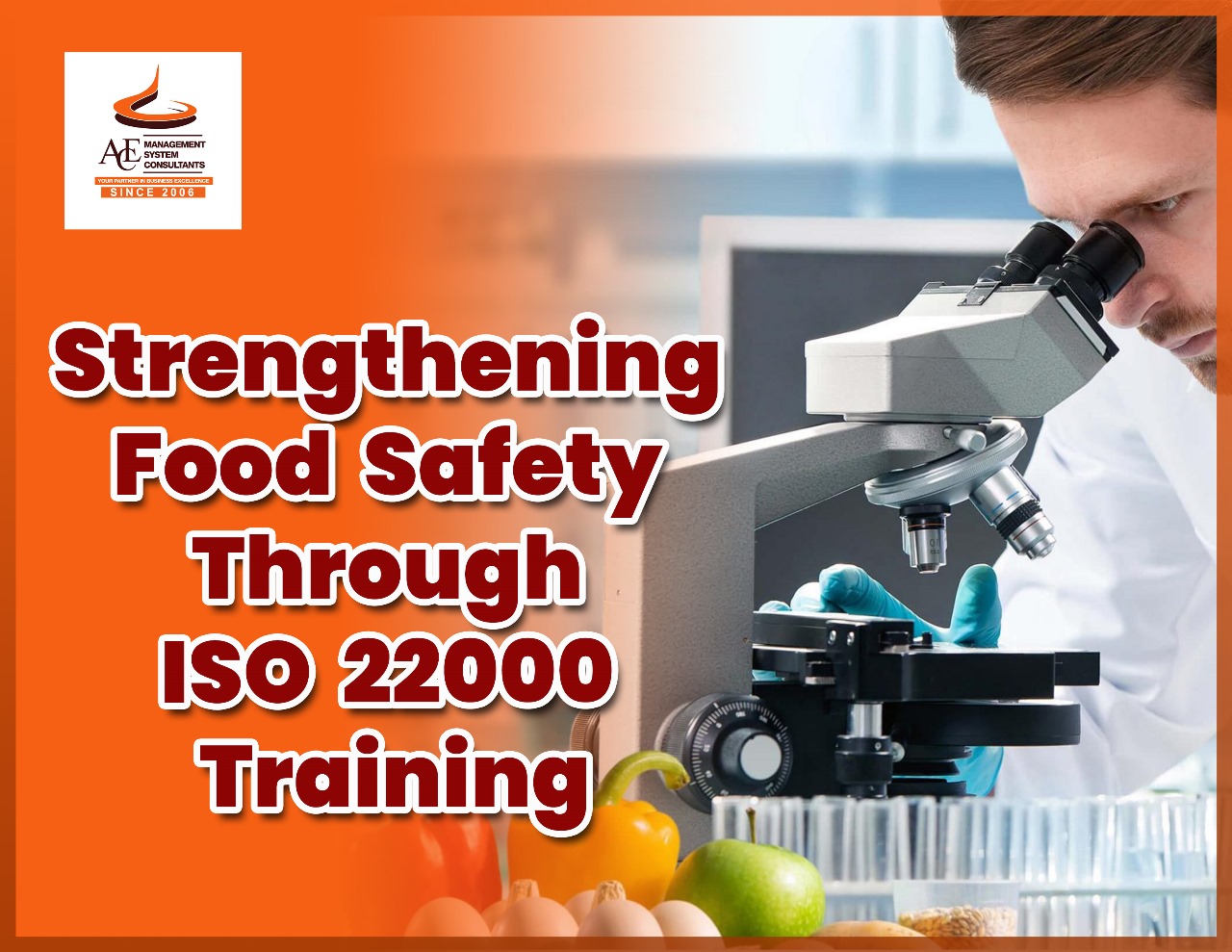- May 09, 2025
Strengthening Food Safety Through ISO 22000 Training
In today’s rapidly evolving food industry, adhering to international standards is no longer optional—it’s essential. Among these, ISO 22000 stands out as a globally recognized benchmark for food safety, providing organizations with the structure and guidance needed to manage risks and deliver safe, high-quality food. As more businesses strive for compliance, the demand for effective ISO 22000 courses and training programs has never been greater.
Understanding ISO 22000
ISO 22000 defines the requirements for a comprehensive Food Safety Management System (FSMS), equipping organizations with a systematic framework to identify, control, and continuously improve food safety practices. Achieving compliance with this standard signals a company’s dedication to upholding the highest standards of food safety and quality across global markets.
Why ISO 22000 Training Is Essential.
Obtaining ISO 22000 certifications goes beyond documentation—it requires in-depth understanding and skilled execution. ISO 22000 training programs are designed to build that capability by providing individuals and organizations with the knowledge, tools, and confidence needed to implement and manage an effective FSMS. These programs help participants navigate complex food safety challenges and apply ISO 22000 principles within their unique operational contexts.
Core Topics Covered in ISO 22000 Training
A well-structured ISO 22000 training course covers a broad spectrum of critical areas, including:
•
A
foundational overview of ISO 22000 and its global relevance
•
Detailed
breakdown of the standard’s structure and key clauses
•
Implementation
strategies tailored to diverse organizational environments
•
Risk-based
thinking and preventive action approaches
• Audit preparation and insights into the certification process
These elements are designed to ensure participants gain not only theoretical understanding but also practical know-how for real-world application.
Key Benefits of ISO 22000 Training Courses
For individuals, ISO 22000 training boosts their ability to effectively manage food safety responsibilities, increasing professional value and confidence.
For organizations, it ensures greater regulatory compliance, enhances food safety performance, reduces risk, and improves global credibility—fostering a culture of accountability and continuous improvement.
Empower Your Organization with ISO 22000 Training
- In a competitive and tightly regulated food industry, staying ahead
means embracing the highest safety standards. ISO 22000 courses and training
programs not only help ensure compliance—they empower individuals and
businesses to contribute to a more resilient and trustworthy global food supply
chain.
Now is the time to invest in your team's food safety expertise and
elevate your organization's commitment to excellence. Seize this opportunity to
lead with confidence in food safety and quality management.
.png)




